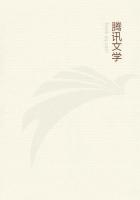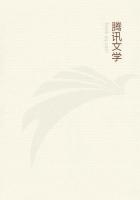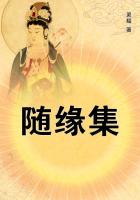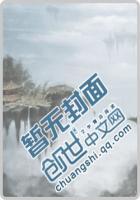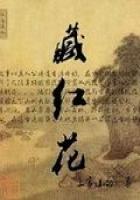In the early twenties of the last century one of the popular songs of the day was "The Hunters of Kentucky." Written by Samuel Woodworth, the author of "The Old Oaken Bucket," it had originally been printed in the New York Mirror but had come into the hands of an actor named Ludlow, who was playing in the old French theater in New Orleans.The poem chants the praises of the Kentucky riflemen who fought with Jackson at New Orleans and indubitably proved That every man was half a horse And half an alligator.
Ludlow knew his audience and he saw his chance.Setting the words to Risk's tune, "Love Laughs" at Locksmiths, donning the costume of a Western riverman, and arming himself with a long "squirrel"rifle, he presented himself before the house.The rivermen who filled the pit received him, it is related, with "a prolonged whoop, or howl, such as Indians give when they are especially pleased." And to these sturdy men the words of his song made a strong appeal:
We are a hardy, freeborn race, Each man to fear a stranger;Whate'er the game, we join in chase, Despising toil and danger;And if a daring foe annoys, No matter what his force is, We'll show him that Kentucky boys Are Alligator-horses.
The title "alligator-horse," of which Western rivermen were very proud, carried with it a suggestion of amphibious strength that made it both apt and figuratively accurate.On all the American rivers, east and west, a lusty crew, collected from the waning Indian trade and the disbanded pioneer armies, found work to its taste in poling the long keel boats, "corralling" the bulky barges--that is, towing them by pulling on a line attached to the shore--or steering the "broadhorns" or flatboats that transported the first heavy inland river cargoes.Like longshoremen of all ages, the American riverman was as rough as the work which calloused his hands and transformed his muscles into bands of tempered steel.Like all men given to hard but intermittent labor, he employed his intervals of leisure in coarse and brutal recreation.Their roistering exploits, indeed, have made these rivermen almost better known at play than at work.One of them, the notorious Mike Fink, known as "the Snag" on the Mississippi and as the "Snapping Turtle" on the Ohio, has left the record, not that he could load a keel boat in a certain length of time, or lift a barrel of whiskey with one arm, or that no tumultuous current had ever compelled him to back water, but that he could "out-run, out-hop, out-jump, throw down, drag out, and lick any man in the country," and that he was "a Salt River roarer."Such men and the craft they handled were known on the Atlantic rivers, but it was on the Mississippi and its branches, especially the Ohio, that they played their most important part in the history of American inland commerce.Before the beginning of the nineteenth century wagons and Conestogas were bringing great loads of merchandise to such points on the headwaters as Brownsville, Pittsburgh, and Wheeling.As early as 1782, we are told, Jacob Yoder, a Pennsylvania German, set sail from the Monongahela country with the first flatboat to descend the Ohio and Mississippi.As the years passed, the number of such craft grew constantly larger.The custom of fixing the widespreading horns of cattle on the prow gave these boats the alternative name of "broadhorns," but no accurate classification can be made of the various kinds of craft engaged in this vast traffic.
Everything that would float, from rough rafts to finished barges, was commandeered into service, and what was found unsuitable for the strenuous purposes of commercial transportation was palmed off whenever possible on unsuspecting emigrants en route to the lands of promise beyond.
Flour, salt, iron, cider and peach brandy were staple products of the Ohio country which the South desired.In return they shipped molasses, sugar, coffee, lead, and hides upon the few keel boats which crept upstream or the blundering barges which were propelled northward by means of oar, sail, and cordelle.It was not, however, until the nineteenth century that the young West was producing any considerable quantity of manufactured goods.
Though the town of Pittsburgh had been laid out in 1764, by the end of the Revolution it was still little more than a collection of huts about a fort.A notable amount of local trade was carried on, but the expense of transportation was very high even after wagons began crossing the Alleghanies.For example, the cost from Philadelphia and Baltimore was given by Arthur Lee, a member of Congress, in 1784 as forty-five shillings a hundredweight, and a few months later it is quoted at sixpence a pound when Johann D.
Schoph crossed the mountains in a chaise--a feat "which till now had been considered quite impossible." Opinions differed widely as to the future of the little town of five hundred inhabitants.
The important product of the region at first was Monongahela flour which long held a high place in the New Orleans market.
Coal was being mined as early as 1796 and was worth locally threepence halfpenny a bushel, though within seven years it was being sold at Philadelphia at thirty-seven and a half cents a bushel.The fur trade with the Illinois country grew less important as the century came to its close, but Maynard and Morrison, cooperating with Guy Bryan at Philadelphia, sent a barge laden with merchandise to Illinois annually between 1790and 1796, which returned each season with a cargo of skins and furs.Pittsburgh was thus a distributing center of some importance; but the fact that no drayman or warehouse was to be found in the town at this time is a significant commentary on the undeveloped state of its commerce and manufacture.

